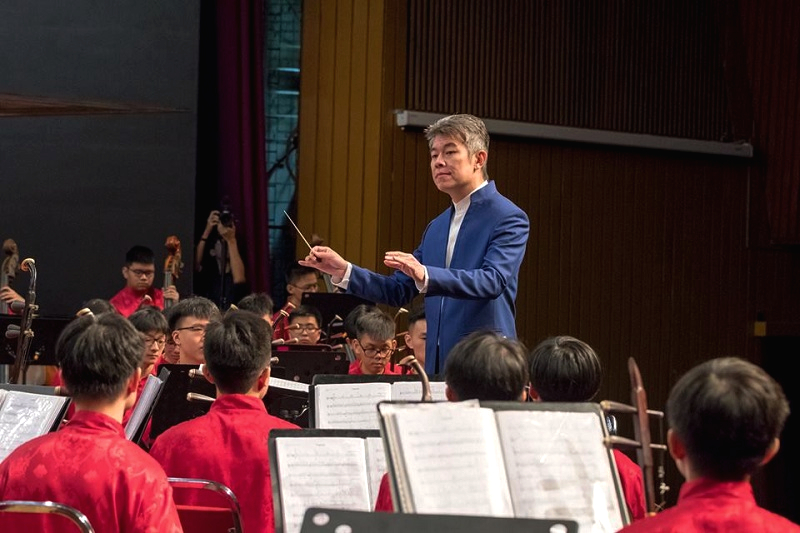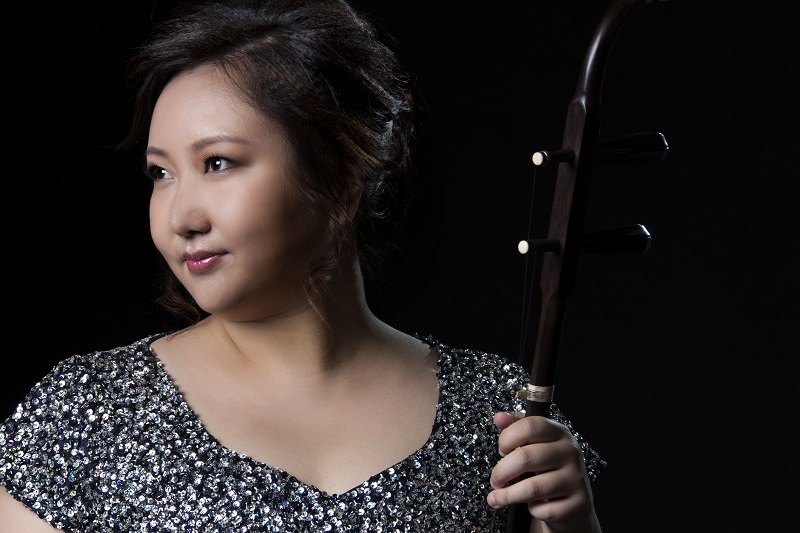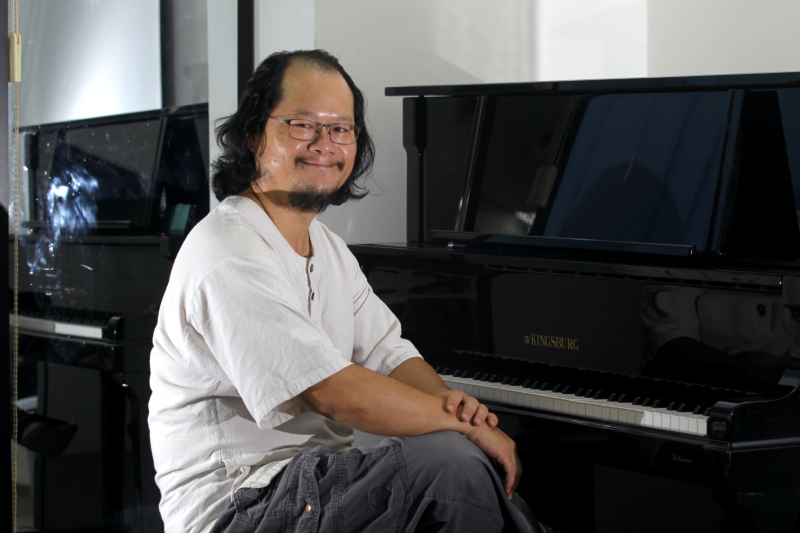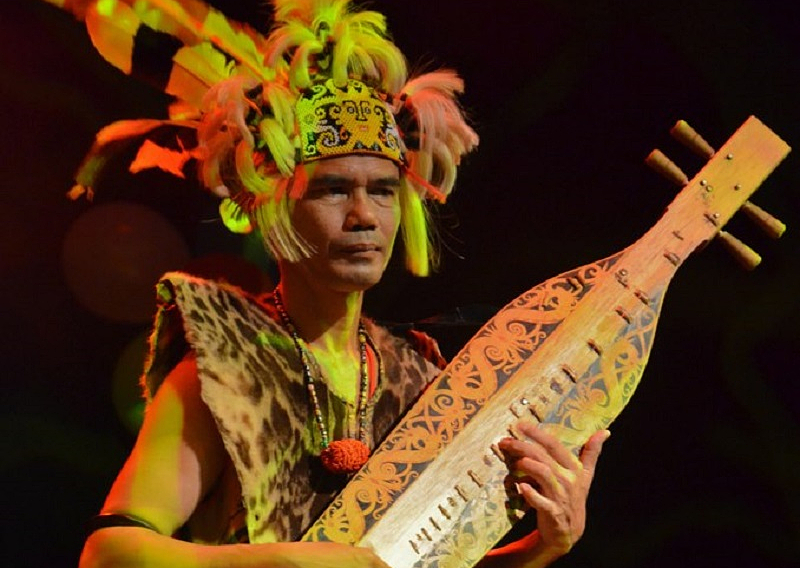
From left: Chew, Zhang and Gau (Photo: The Journey)
When word got out about an upcoming Chinese orchestral concert, I was intrigued. Chinese orchestras have had a long history in Malaysia, fuelled by initiatives at the grassroots level such as extra-curricular programmes in schools as well as companies like the Zhuan Yi Chinese Orchestra and Yi Xiang Ler Orchestra. However, large-scale concerts have been few and far between in the past decade, especially in comparison with the increasingly popular Western symphonic orchestras.
So, I was more impressed to learn that The Journey was the culmination of an initiative by a group of Malaysian musicians, who came together with the ambition of seeing Chinese orchestras grow in popularity. The result is an orchestra with 88 members gathered from all over the country, most of whom had been selected through open auditions.
36002439_10214634216062990_3590087373733494784_n.jpg

Helmed by Malaysian composer and conductor Chew Hee Chiat, who is the resident conductor of the Hong Kong Chinese Orchestra (HKCO), the concert will also feature Zhang Chongxue, the concertmistress of HKCO. Interestingly, she will be performing on an EcoErhu and an Eco-huqin, both of which are made from synthetic membranes — as opposed to snake skins used in traditional instruments — pioneered by HKCO.
Paying tribute to the traditions of Chinese orchestras, the opening performance will be Fantasia — The Terra-Cotta Warriors by Peng Xiuwen, a well-known piece inspired by the Qin dynasty and the suffering of its soldiers during the wars instigated by China’s first emperor, Qin Shi Huang. It will be followed by the Red Plum Capriccio, which is based on the theme song of an opera named In Praise of the Red Plum (or Red Plum Praise). The latter tells the dramatised real-life story of Jiang Jie, a revolutionary who was ultimately imprisoned and killed for her activism in the 1940s.
zhang_chongxue_1.jpg

What’s arguably most exciting about The Journey are the two contemporary compositions that will be performed, challenging the idea that Chinese orchestral concerts are dated and relics of the past. Closing the concert will be Tang Resonating, written by Hong Kong composer Ng Cheuk-Yin. It uses the ancient melodies of the Tang dynasty as a springboard into various worlds of the East and the West, leading the performance back to the present with its fresh amalgamation of genres and musical styles that embody the times.
Also noteworthy — with an added sense of anticipation due to its local element — is Yii Kah Hoe’s Sounds of Nature. He is no stranger to the international orchestral scene, being one of the most prolific Malaysian composers with works that straddle Western and Eastern foundations.
Known for his unique musical language, the 49-year-old Sarawakian is often called an “avant-garde” composer. Sounds of Nature certainly bears all the hallmarks of his signature style, written after a 10-day sojourn in the rainforests of his hometown where he did research and studied with the Kenyah.
peo_yii_kah_hoe_3_hh.jpg

“This piece was commissioned last year by the HKCO as the conductor, Chew, is my friend. So, I invited him to come with me to the rainforest, along with the sape player, Solomon Gau, to work on this project. The idea was to explore the relationship between man and nature, an abstract visualisation of that through music,” says Yii.
Drawing inspiration from the surrounding noises such as those of birds, foxes, frogs, crickets and nature, the composer created a soundscape, one that he first drew and sketched like ink paintings on his notebook.
“I always draft my ideas through drawings. I need to visualise them before translating them into my own musical language. When I see the image, I can remember the sound. Every line and thickness of the brush to me is music,” says Yii, who majored in Chinese ink painting before going on to do his master’s in musicology. “I don’t recreate the exact sounds of what I hear, but I interpret it in my own way.”
He also spent some time with Gau in Miri, studying the techniques of the sape, after which he held a workshop with musicians who play the sanxian and pipa string instruments to create a more harmonious and blended sound to match the lilting sape, which inspired the foundation of the work. In fact, the anchoring rhythm of Sounds of Nature comes from a folk song and dance, traditionally passed down from mother to child, with its hypnotic repetition of “de di ah” played and sung in turn.
9195712720_3b9b027d51_b.jpg

The 20-minute-long piece will start with the deep vibrations of the double bass, heralding one’s arrival and first steps into the forest and the tuning in to the earth’s heartbeat. From there, the orchestra will bring the audience on a journey through the elements — water, stone, wind and even thunder. As the piece moves from one phase to another, the sounds will grow more complicated, layered upon again and again, until a lull marks Gau’s appearance and he takes the audience further with his singing of Kenyah folklore. The rainforest will then re-emerge onto the foreground, enveloping the audience with its cacophony of sounds until finally, everything resolves into pure tranquillity again.
“I’ve always appreciated the sape from a young age and I love its sound,” says Yii, who incidentally hails from the same town of Marudi as Gau. “I want to introduce the sape to a wider audience all over the world. I think this will be one of the first — if not the first — times the instrument is being played with a full Chinese orchestra.”
Promising to be unlike any other sape performance we have seen, Sounds of Nature incorporates an interesting array of percussion instruments, from rocks to rolled-up metal sheets, a thunder tube, a rainstick and wind chimes, among others.
Acknowledging that it is rare for his compositions to be performed here, Yii says the lack of full-scale orchestras in Malaysia that can afford to commission works means he and his colleagues often have to find work abroad.
“That’s why I think this is an amazing opportunity. It’s also important because many Chinese orchestras’ works are, naturally, by Chinese composers. But this performance offers people a chance to listen to — and for the musicians, an opportunity to play — a composition by a Malaysian composer … it helps us to establish our own identity and allows us to develop our own style here in Malaysia and not just copy a standard one,” remarks Yii.
'The Journey' will be performed on Aug 10 and 11 at Pentas 1, The Kuala Lumpur Performing Arts Centre, Jalan Strachan, Kuala Lumpur. Tickets are priced at RM58, RM88 and RM118. Buy tickets here.
This article first appeared on July 29, 2019 in The Edge Malaysia.


